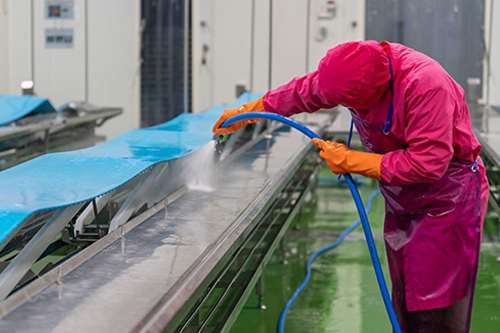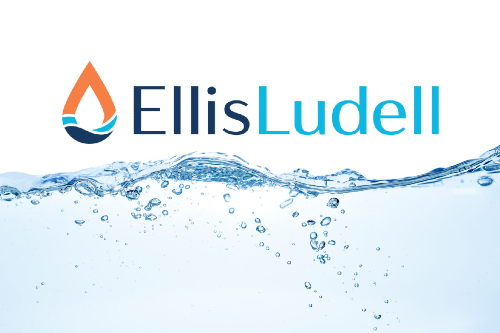Making It Fit
Sometimes you have big compliance goals but don’t have the space required for a large-scale system. Designing high-performance systems for those tight areas is something that Ellis can deliver. In many applications, there is a lack of floor space to install a full wastewater treatment system on the ground floor. Taking some of that equipment and placing it overhead allows floor space for the larger pieces of equipment while putting ancillary equipment on a platform. Manufacturing platforms, connecting walkways and stairways to keep equipment operating above the ground is part of our scope to make it fit.
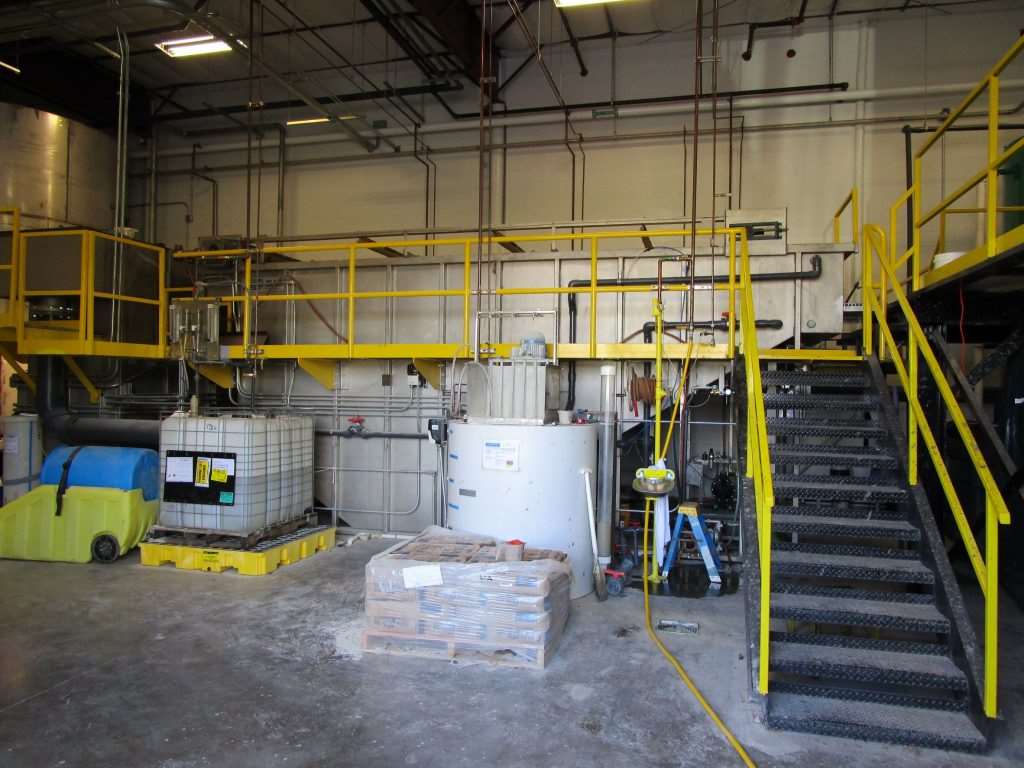
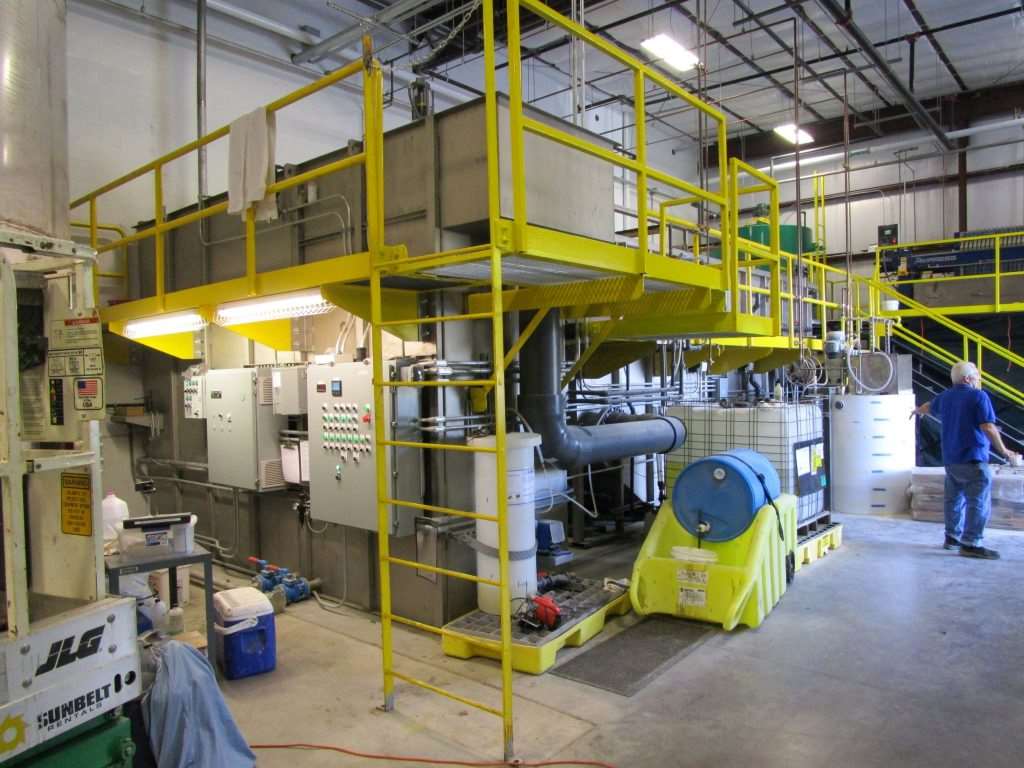
Out of Room
When you can’t go up and there is no room in the building what do you do? Containerize the system. Buildings can become land-locked and space becomes limited but meeting compliance does not stop. Designing and installing compact systems is what Ellis can deliver.
Ellis has designed and installed systems inside shipping containers. These containers are compact and can be stacked if more space is required. Containers come equipped with heat or air conditioning, full electrical power with control panels, and running hot and cold water.


Ellis has designed and installed systems inside shipping containers. These containers are compact and can be stacked if more space is required. Containers come equipped with heat or air conditioning, full electrical power with control panels, and running hot and cold water.
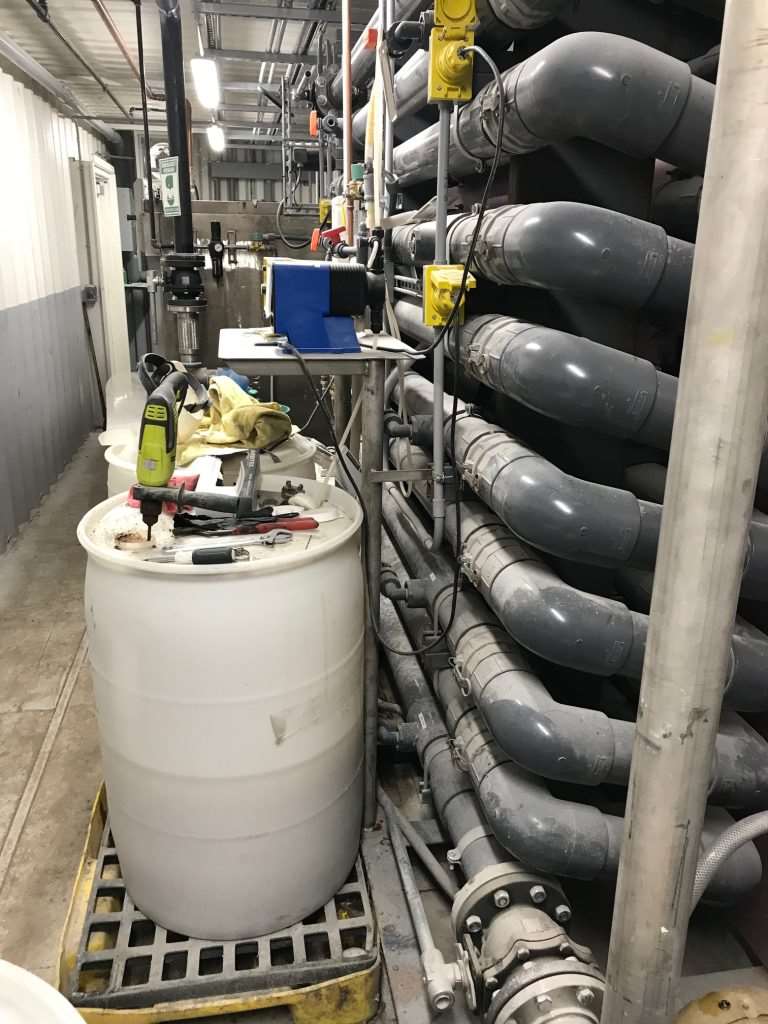
Flocculators are used to chemically treat the wastewater before addition into a DAF.
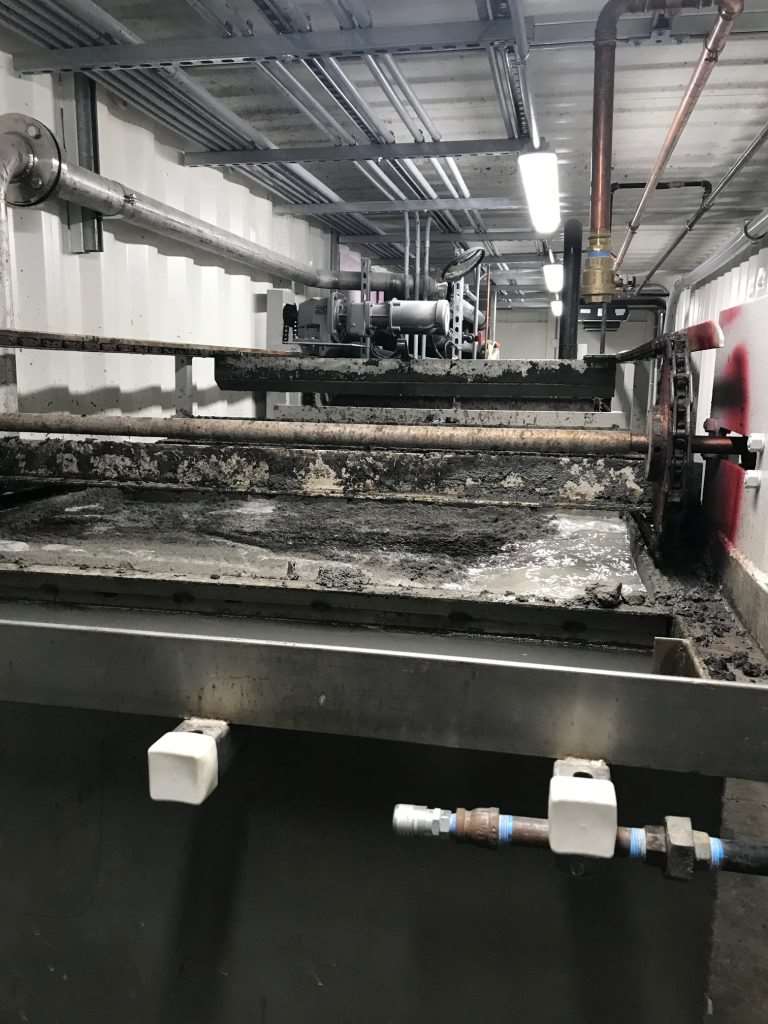
A complete system including Dissolved Air Flotation (DAF) units, Oil Water Separators (OWS)
and Emulsion Breakers and small Inclined Plate Clarifiers can be added to containers to bring
the wastewater into compliance.
Nice and Compact
Ellis Corporation has engineered a filter belt system that has been able to help businesses such
as industrial laundries get into compliance with Fats, Oils, and Grease (FOG) or Hexane
Extractable Material (HEM) discharge limitations. The Ellis Rotary Belt Screen (RBS) is designed
to use standard wastewater treatment chemicals to break oily emulsions and attach to the
solids in the wastewater. The wastewater flows through chemical reaction tanks or tube
flocculators to provide the optimum contact time and mixing energy to improve chemical
performance. The chemically treated wastewater is filtered through the rotary belt screen
leaving the oily solids on the filter belt. These solids are washed off the filter belt and squeezed
into a screw press dewatering the sludge. This system works well and fits nicely into small
areas.
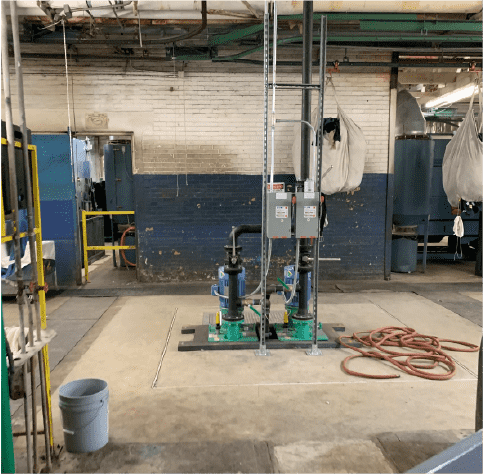
Achieve Compliance with Fats, Oils, and
Greases.
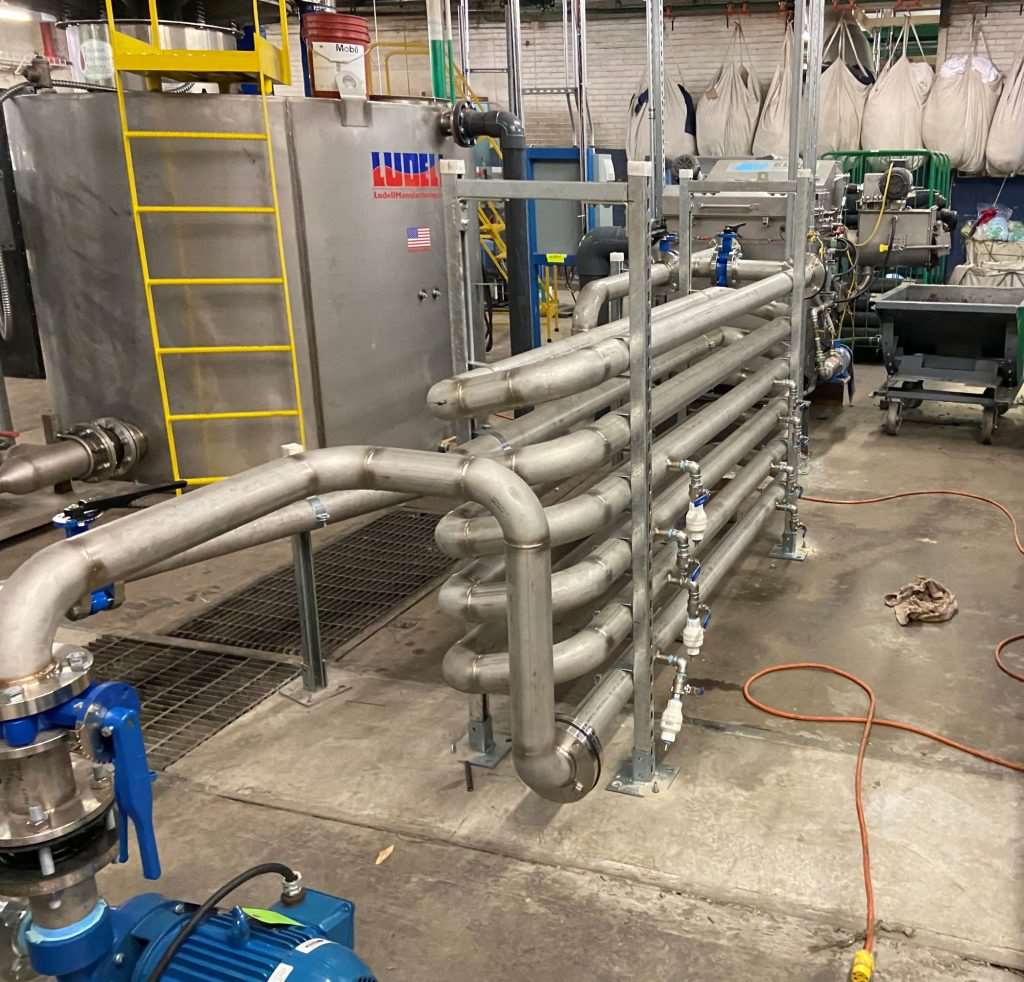
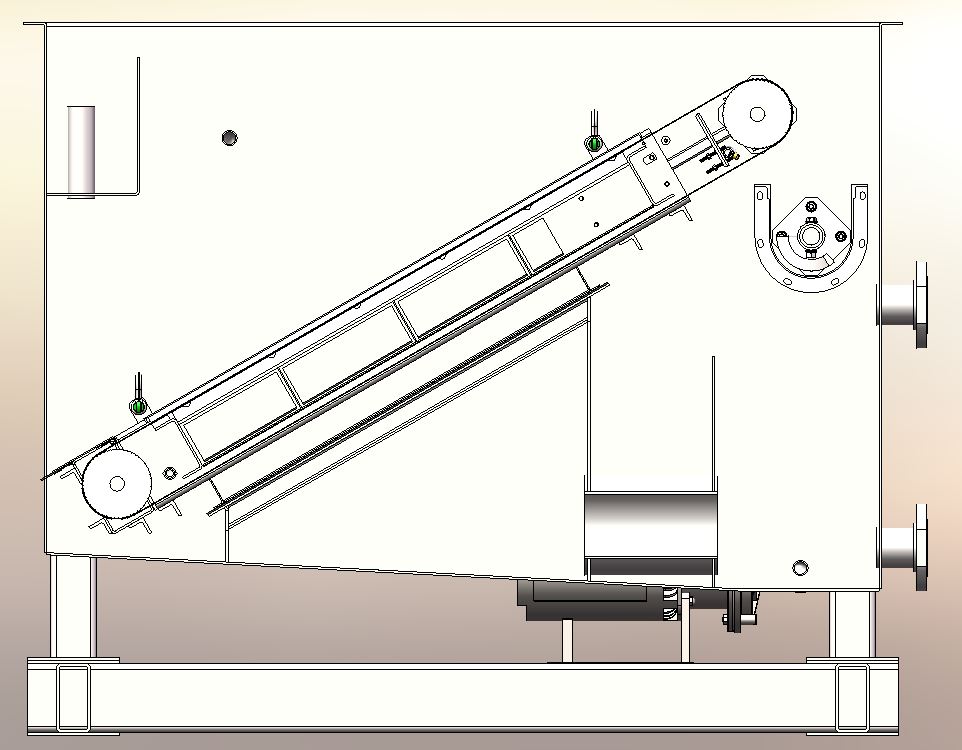
unit and gravity filters through the belt. Effluent is discharged from
the bottom of the unit. Solids are fed using an auger into the screw
press for dewatering.
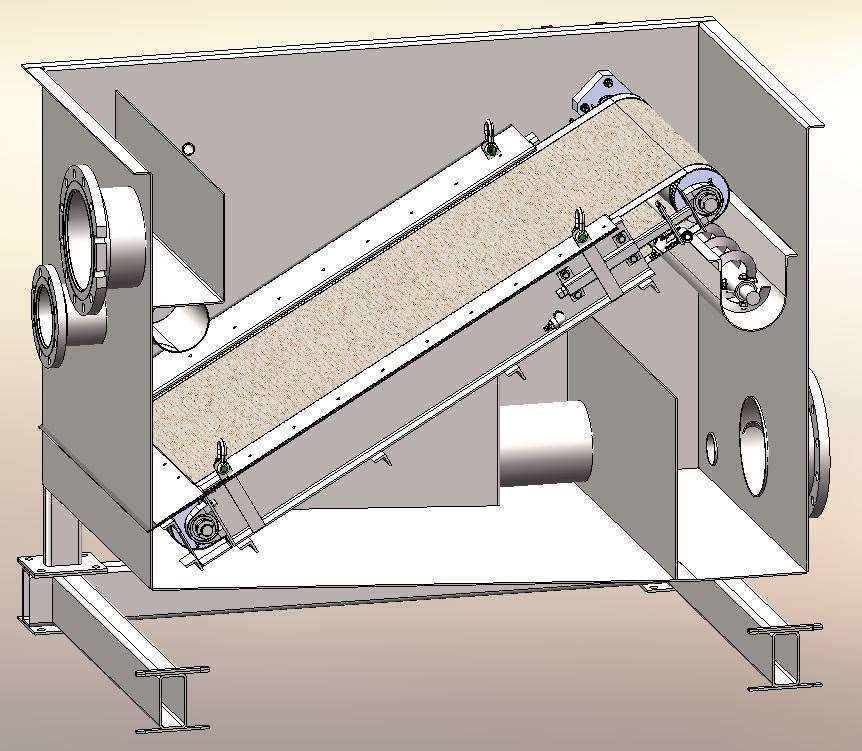
Contact Us
We are here to answer your questions about water treatment, water heaters, and/or laundry equipment. Whether you need to replace existing equipment or engineer a whole new solution, contact EllisLudell for a solution right for you.
Related Blogs
The Cost of Cutting Corners in Industrial Laundry: What You Risk with a Non-Certified Water Heater
In industrial laundry operations, cost and lead time often drive equipment decisions. But when your water heating…
Certified Water Heaters Protect Temperature and Product Quality in Food Processing
Food safety is not just a priority. It is a requirement that touches every decision you make…
NSF Certification: A Critical Standard for Food Processors
In the food processing industry, water plays a central but often underappreciated role. It supports sanitation, blending,…
Challenges in Operating Industrial Wastewater Treatment Systems
There are major challenges facing operators of industrial wastewater treatment systems that can affect the major overall…
Minimizing Down Time
Managing Industrial Wastewater Treatment Is Downtime Avoidable? Murphy’s Law happens frequently in the Wastewater Treatment Industry. How…
Ellis adds top industry executive to its Leadership Team
Ellis Corporation, Itasca, IL is pleased to announce that they have hired Scott Voss as VP of…
Managing Your Industrial Wastewater Treatment System
Managing Industrial Wastewater Treatment There are reasons an industry is required to install a wastewater treatment system. …
Using Chemicals in Wastewater Treatment
Chemicals are commonly used in industrial wastewater treatment processes in many differentapplications. These include: Removing Solid Particles…
Will You Be Ready for Your Next Pretreatment Compliance Inspection?
Pretreatment regulations require that the POTW (Publicly Owned Treatment Works) conduct annual inspections of industrial dischargers as…
How Clean does Clean have to be for Recycle Water Quality?
When contemplating wastewater recycling to be used for process waters there are many filtration technologies to consider….



